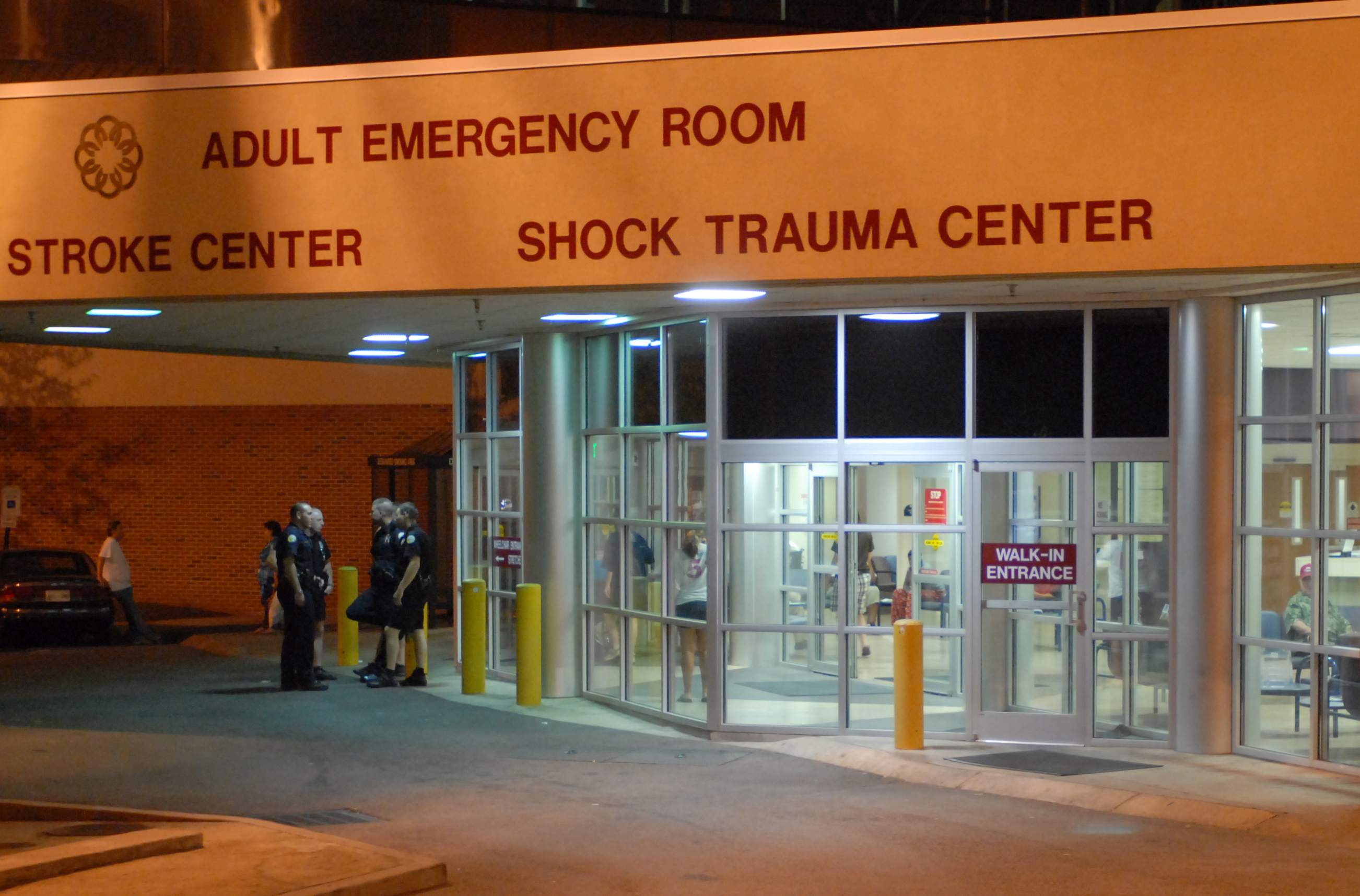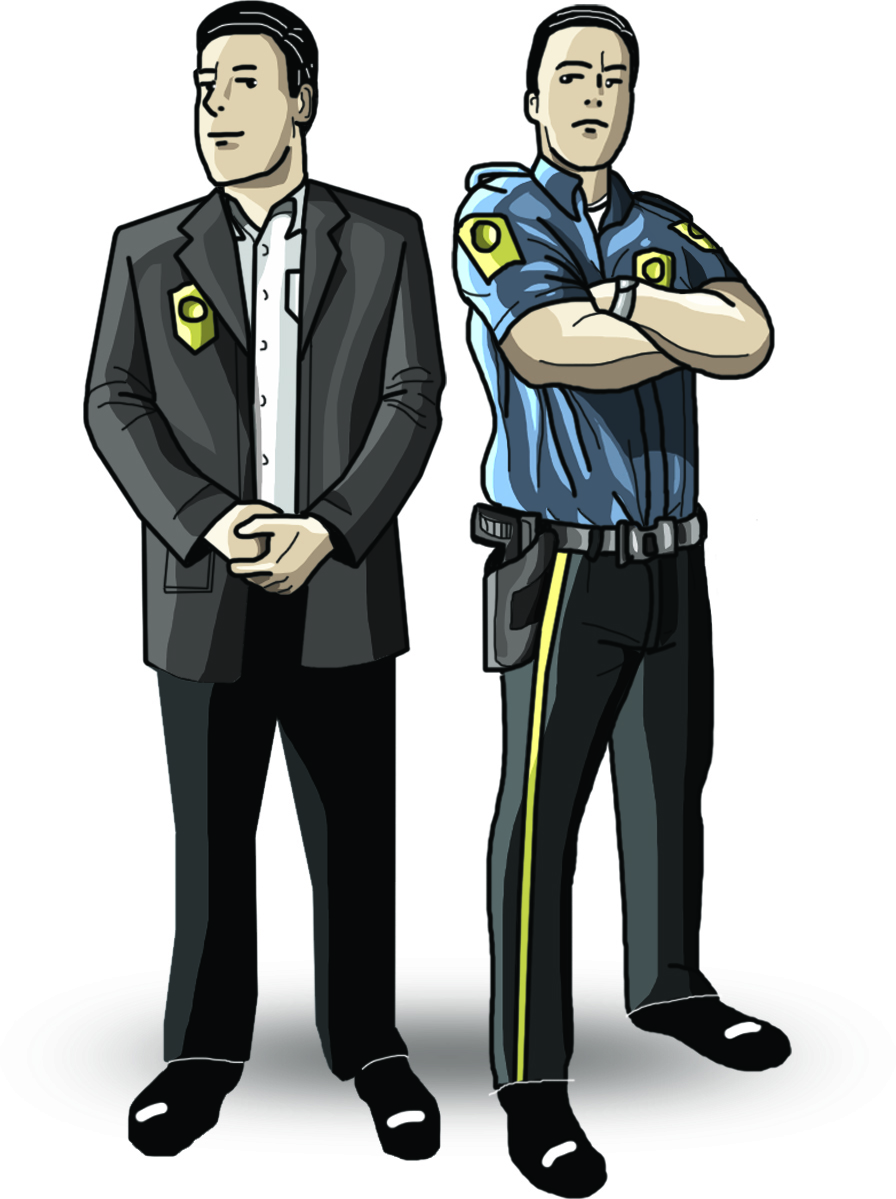Against arming and uniforms• Arming security guards with a deadly-force weapon adds substantial liability to the hospital.• There are already armed deputies on hospital grounds.• Guards in tactical uniforms are less approachable, and make patients feel anxiety.• Just over half of hospitals in the U.S. have armed security guards, and experts say that having armed guards is not necessarily tied to lower rates of hospital violence.For arming and uniforms• Violence in hospitals is a chronic problem, and has only continued to rise.• Erlanger is the hospital where most victims of violence are treated, meaning there is added risk that disputes will spill over in the hospital.• A uniform gives a security officer more recognizable authority, especially in tense situations, and makes patients and staff feel safer.• Security guards were unarmed when two women were shot and killed at Hutcheson Medical Center in 2012.
Over the last year, officers at Erlanger Health System have broken up fights in the emergency room. They've handcuffed patients trying to fight nurses. They have wrestled down drunk patients trying to make a getaway.
Such problems are all too common at any hospital. But in the last month, tensions at Erlanger have risen. Police clashed with a crowd of more than 40 people outside of the emergency room after a shooting victim was brought to the hospital. Security says they are escorting three times as many women to their cars since a woman reported that she was assaulted in the parking deck this month.
Erlanger staff members said they expected a more aggressive security response after these incidents. But Erlanger officials are taking a different approach -- one that a group of guards and staff members say they aren't happy with.
With the goal of creating a more "family-friendly" environment, Erlanger has decided to disarm its security guards and replace their police-style, tactical uniforms with blazers for a more approachable look.
But hospital staff members circulating a petition in protest worry that they make the hospital less secure.
"We cannot decrease our personal safety to increase the appearance of political correctness," the petition says. "By pushing the security of Erlanger Health System to be unarmed, you are directly placing your employees, patients and visitors in danger."
It was unclear how many hospital staff members had signed the petition by Tuesday.
Violence in hospitals has increased over the last decade, reports from various government and hospital groups show. The Bureau of Labor Statistics found in a 2010 study that a worker in health care is nearly five times more likely to be assaulted or harmed by another person than the average worker in all industries combined.
A current security guard at Erlanger, who spoke on condition of anonymity, said, "We get calls every night to assist with combative patients. ... I never realized before working at a hospital how violent patients are toward doctors and nurses."
Erlanger faces a unique set of security challenges as the region's largest service provider and only Level 1 trauma center. It treats most of the victims of violence, including shootings. The hospital also contracts with the jail to provide care for inmates. And it treats a growing number of people with mental illness as state hospitals have been shuttered.
Erlanger's $2.3 million contract with Walden Security for armed guards, awarded in 2011, was put out for bid this summer, hospital officials said. The new contractor will be chosen in December. But officials said the decision to disarm officers has nothing to do with Walden and much more to do with the liabilities involved.
At least one off-duty Hamilton County deputy sheriff is on campus at all times, and hospital officials say going forward they will continue to have armed officers in "strategic locations."
In a memo to Erlanger employees Tuesday afternoon, CEO Kevin Spiegel said that between the armed deputies, 225 security cameras and the security force, the hospital is "providing the most secure environment possible."
"It is important for you to know that under a new security agreement, Erlanger will have an even stronger security presence throughout the health system," Spiegel wrote.
But several Walden guards say there are fewer of them than in the past, and they will not feel safe without uniforms and sidearms.
A national study conducted this summer by the International Healthcare Security and Safety Foundation found that security guards are at risk of being injured by hospital violence. It called for "continued training and enhanced tools" for their own safety as well as that of other hospital staff and patients.
Unrest in local hospitals
Open 24/7, unable to turn any patient away, local hospitals are some of the busiest places in Chattanooga. They employ thousands, and treat thousands more every year.
Some patients have medical issues that impair judgment -- head injuries, mental health episodes, dementia -- or take drugs that affect behavior. Strained family relationships and domestic violence can explode in waiting rooms and visiting rooms.
"Hospitals are big, public facilities that deal with plenty of issues on a daily basis. It's just a fact of reality," said Dr. David Adair. An OB-GYN who practices at Erlanger, Adair said labor and delivery units are fraught with patient drama.
"I don't understand why you would take away this tool that guards use. I'm just not sure that I like that idea," he said.
Local hospitals have varying approaches to security. CHI Memorial has in-house staff who are uniformed but unarmed, spokesman Joshua Ball said, though Chattanooga police are present at designated times in the ER.
Parkridge Health System uses armed Walden Security guards along with an off-duty police officer around the clock in the downtown ER, spokeswoman Alison Sexter said.
But law enforcement has been dispatched to Erlanger more than twice as many times this year as Memorial and Parkridge together, 911 records show.
As of Nov. 6, officers had been dispatched to Erlanger 321 times; Memorial had officers dispatched 163 times, and Parkridge 109 times, as of Nov. 7. The numbers don't count traffic stops made at the hospital's address.
Police incident reports obtained by the Times Free Press detail disruptions caused by combative patients and family members. Especially in the ER, a place where mayhem and medicine frequently intersect, incident reports document the force officers routinely must use to control volatile individuals and small crowds.
One report says, "patient became violently resistant. Officers attempted to physically restrain him by holding him down ... he had to be handcuffed to the bed utilizing two sets of handcuffs."
Another report reads, "(Patient) punched his girlfriend in the face ... he became hostile towards medical staff ... he became belligerent ... he harassed the staff ... he was cuffed, and taken into custody."
Crowds of upset people often form outside the ER when a gunshot victim is brought to the hospital. It is security's job to handle the crowds and, if needed, call the police department for backup, guards say.
One report states that a semi-automatic handgun was found in a car parked beside a hospital entrance.
In such scenarios, hospital guards say, the uniform is a crucial component that allows them to do their job.
"Our uniform serves as a part of our presence when we walk inside a room," one guard said. "If I was just in a suit and tie, I look like anyone's dad down the hall."
Measuring risk
According to the most recent numbers from the Bureau of Labor Statistics, 9.7 health care workers were assaulted per 10,000 full-time workers in 2010, compared with an overall rate in private industry of 2.7 assaults per 10,000 workers.
Nationally, the agency reported 91 homicides and 145 violent acts at health care facilities from 2007 to 2010. That was higher than the previous four-year period, with 80 homicides and 126 violent acts.
A security video showing a Minnesota patient's violent attack on four nurses with a metal bar made headlines last week.
And one regional hospital still bares recent scars of extreme violence. Just two years ago at Hutcheson Medical Center in Fort Oglethorpe, James Benson, 59, walked into a waiting room and shot to death his estranged wife and his mother-in-law.
There are no national standards or laws governing hospital security. The study by the International Healthcare Security and Safety Foundation found that just over half of hospital guards are armed. The study does not say whether there was less violence at hospitals where guns were available.
But arming security guards is not necessarily the solution to these kinds of issues, said Marilyn Hollier, president of the organization.
"Sometimes the liability of having armed guards is just too much for a hospital to take on, and it may not actually improve security," Hollier said.
Hollier favors a "blended approach" of having armed uniformed officers to patrol perimeter areas and entry points such as the ER, along with unarmed officers who may be more approachable.
But even more important than uniforms and weapons, Hollier said, is a strong partnership between medical and security staff, and the hospital's willingness to commit money, training and resources to guards.
"Hospitals that do not invest in security because it does not produce any kind of measurable revenue are taking a gamble," said Hollier.
Contact staff writer Kate Harrison Belz at kbelz@timesfreepress.com or 423-757-6673. Contact staff writer Kendi Anderson at kendi.anderson@timesfreepress.com or 423-757-6592.


